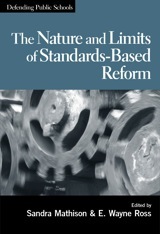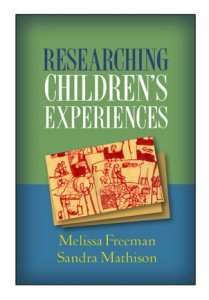Here is a good example of using logic models that are more complex than the linear approach most frequently seen in the literature.
Paul Taylor, Normative Discourse
Taylor argues that normative discourse can be distinguished from “scientific, mathematical and historical discourse, and from any other ‘universe’ of discourse in which language is used for purposes other than making and justifying of evaluations and prescriptions.”
Chapter 1 The Process of Evaluation
Chapter 3 Justification of Value Judgements
Chapter 4 Value Systems and Points of View
Chapter 7 The Concept of Prescribing
Chapter 8 Prescribing and Evaluating
Assessing What Kids Think About Themselves
There are a plethora of strategies for collecting data from children and youth that provide evidence for evaluation of services and programs. (See a previous post on my new book that focuses on data collection strategies that ensue from a perspective that sees youth as culturally embedded meaning-making social actors.) Often, the focus is psychological and individual–that is, focusing on psychological states and attributes and judging changes in those based on some sort of intervention. A good example of this is a report just released by Child Trends. This report provides an instrument for measuring adolescent’s self-concept. This is standard psychometric fare and could be useful, however, think about the viable alternatives. What if you asked youth to draw a self-portrait, or write a biographical sketch, or create a photo-essay that reflects how they think about themselves, and well you get the idea. Self-concept is, as the report suggests, and important consideration in youth oriented programming and thus in evaluation. So important, that we should be cautious about using simplistic indicators, just because they are there.
NEW BOOK: Research Children’s Experiences
This book, to be released in October, focuses on research rather than evaluation but many of the issues and strategies are relevant especially for participatory approaches to evaluation of programs and services for children. The book is published by Guilford Press.
Public Good and Private Interest in Educational Evaluation
Public Good and Private Interest in Educational Evaluation
Cite as:
Mathison, S. (2009). Public Good and Private Interest in Educational Evaluation. In W. Ayers (Ed.). Handbook of social justice in education. New York: Routledge, pp. 5-14.
NEW BOOK – The Nature and Limits of Standards Based Reform and Assessment
Edited by S. Mathison & E. W. Ross, published by Teachers College Press.

quotable quotes
If you judge, investigate. Seneca
Kelly Conference 2008
Battleground Schools

Just published two edited volumes (by yours truly and E. Wayne Ross) on controversial issues in education during the last century. More information about the book at Greenwood Press.
Potpourri of streaming videos from Western Michigan’s Evaluation Center
The Evaluation Center’s Evaluation Cafe presentations from last year are online and many can be viewed as streamed video. There is a wide range of topics and many excellent speakers ~ just a few highlights are:
Michael Scriven on causal attribution
Patricia Rogers also on causal attribution
Lois ellin Datta on the appropriateness of RCTs for evaluation
 Follow
Follow


